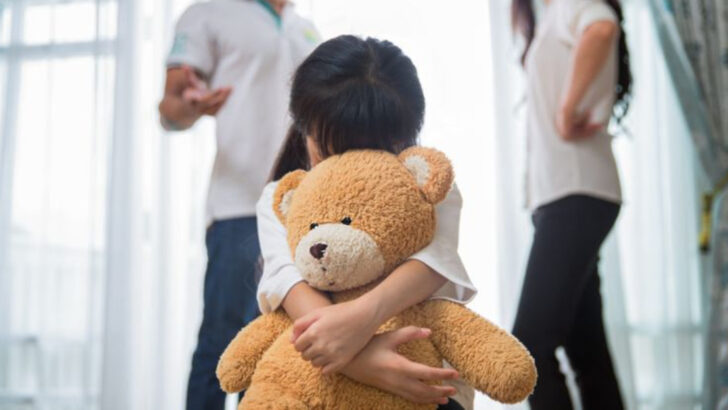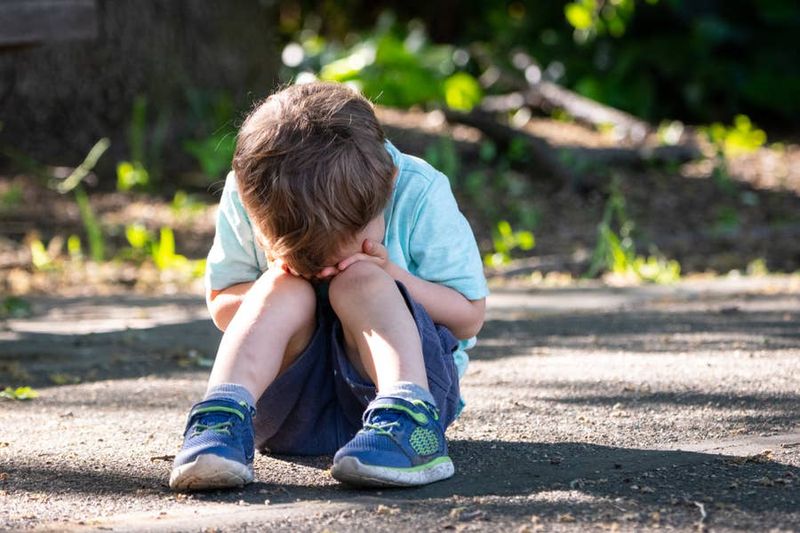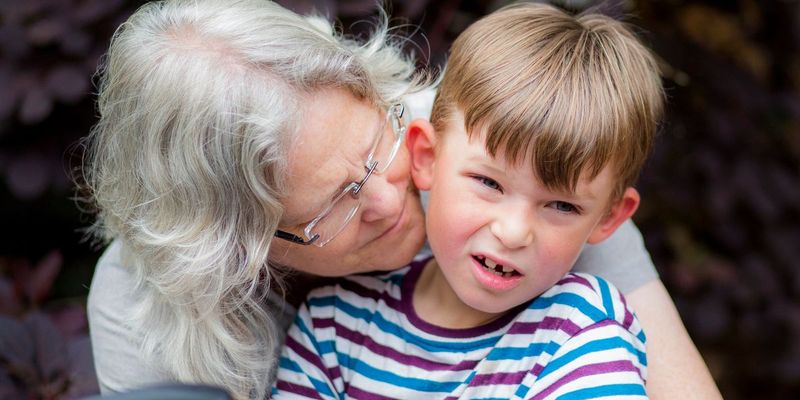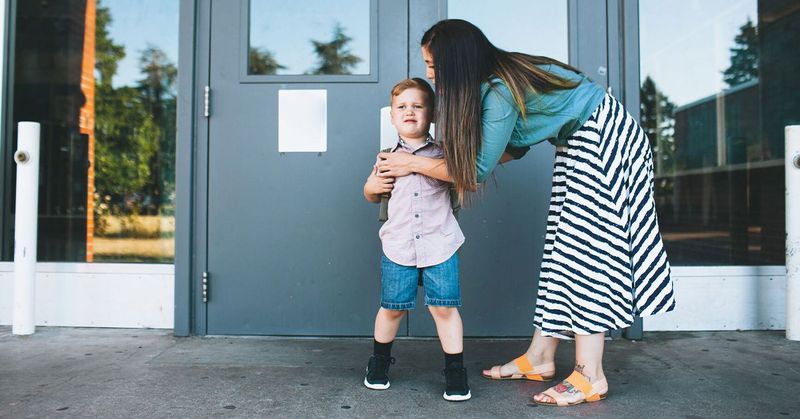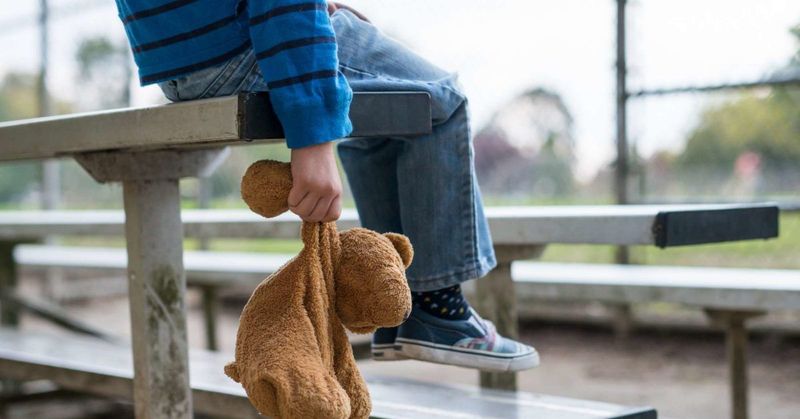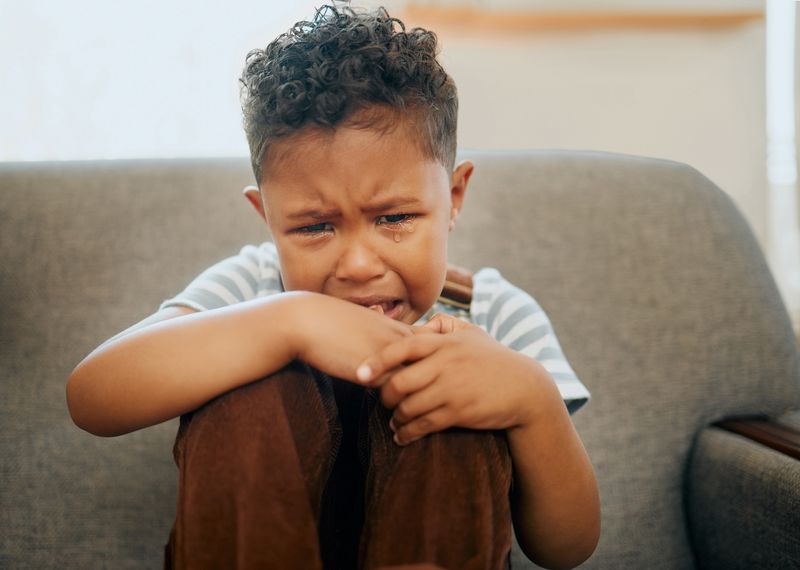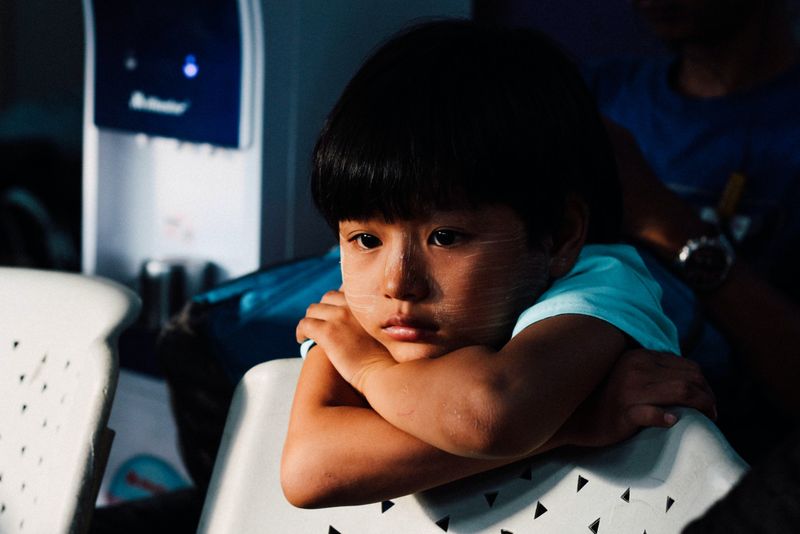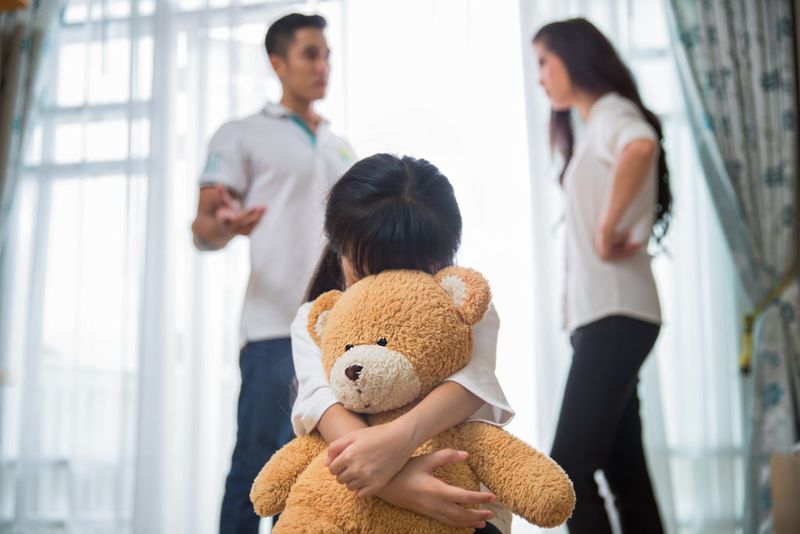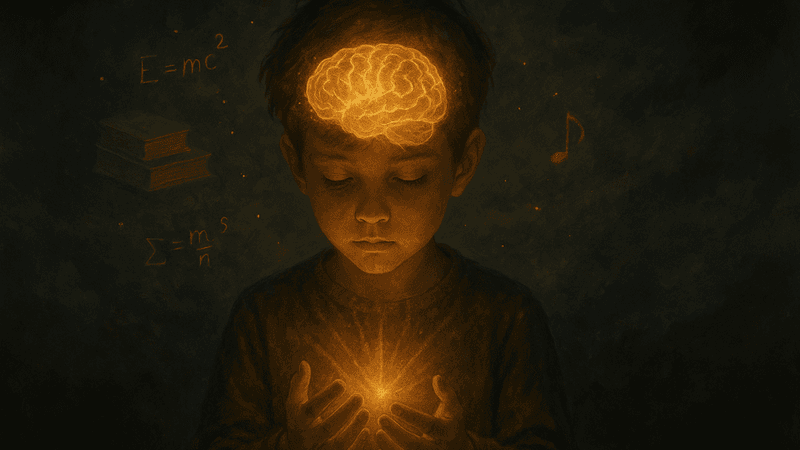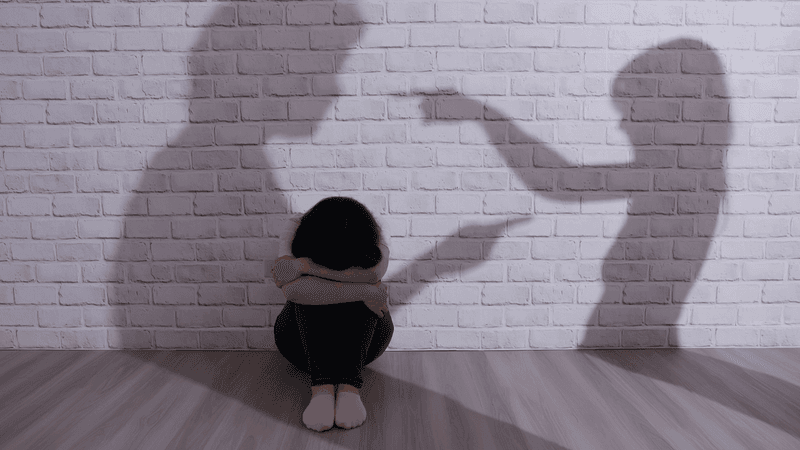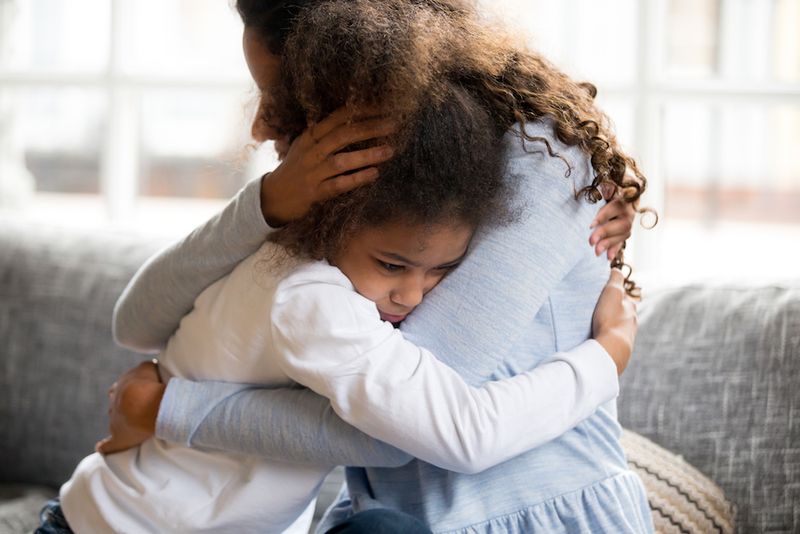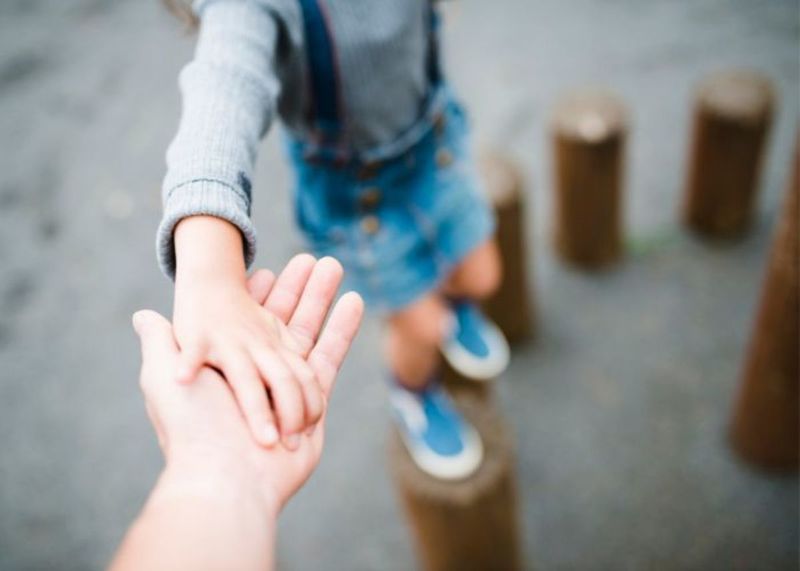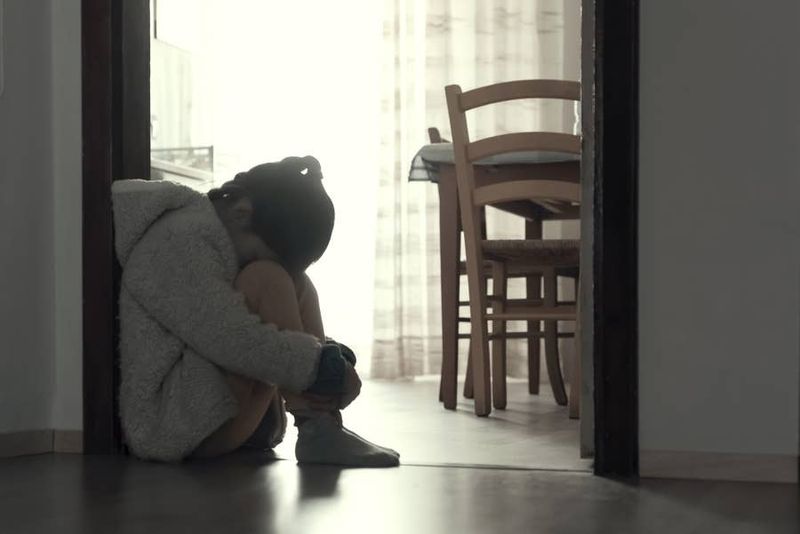You know those memories you replay in your head, the ones you brushed off as just “how things were?” Turns out, some of those moments weren’t harmless at all. They left marks—quiet, deep ones—that most people don’t talk about until years later, if ever.
This isn’t about blaming parents or rewriting the past. It’s about seeing truth in the daylight, naming what hurt you (even if it wore a friendly face), and realizing you weren’t just being dramatic.
Here are eighteen moments so many of us called “normal”—but that shaped us in ways we’re only now starting to untangle.
1. Being Told to “Just Ignore It” When Bullied
It seemed like adults thought ignoring bullies was some sort of shield. Like if you just didn’t react, the mean words would bounce off you and disappear. Instead, you learned to shrink yourself, to pretend it didn’t sting, to swallow every flinch and every smart comeback.
You probably still hear that voice in your head—”don’t make a scene, don’t give them the satisfaction.” But what you never learned was how to speak up, or that your pain deserved action, not silence. Did you start to believe you were weak because you couldn’t just let it go?
Kids aren’t built to handle cruelty alone. When you were told to “just ignore it,” you absorbed the idea that your feelings were inconvenient, your suffering invisible. Healing starts by letting yourself remember: it wasn’t nothing.
2. Forced to Hug or Kiss Relatives
Remember being nudged forward, cheeks burning, to hug the uncle you barely knew? Maybe you squirmed, but someone’s hand pressed at your back—a gentle force that didn’t feel gentle at all. Your “no” didn’t matter here; the family photo did.
You learned that pleasing others outranked your own comfort. It’s a lesson that sneaks into relationships later: saying yes when you mean no, feeling like your boundaries are negotiable. It isn’t about holding a grudge. It’s about understanding where the confusion started.
Bodily autonomy sounds like grown-up jargon, but it begins with tiny moments. When a child’s “no” is ignored, it’s not forgotten. It becomes the script for how safe—or unsafe—you feel in your own skin.
3. Hearing “What Will People Say?” Too Often
The phrase hung in the air like a warning bell. “What will people say?” became a reason to shape your life around somebody else’s expectations. Maybe it meant covering up mistakes, hiding your true self, or learning to calculate every move.
You probably got really good at reading faces and holding your tongue. Stepping out of line felt dangerous, even for small things. Eventually, “people” became this faceless jury you tried—hopelessly—to please.
Did anyone ever ask what you wanted? Or did fear of shame keep you in check? That anxiety doesn’t always leave when you grow up. Sometimes, it just gets quieter, lurking under every decision you make.
4. Being Labeled “The Mature One”
Someone had to be the adult, right? Even when you were nine, you sensed it. Maybe it looked like cleaning up messes, smoothing over arguments, or being praised for not “causing trouble.”
You learned early that your needs could wait. Sometimes, being the “mature one” felt like a secret badge of honor. Other times, it was just lonely. You missed out on being a kid, because someone handed you grown-up worries before you knew what to do with them.
If you still struggle to ask for help, or feel guilty for needing care, trace it back here. Being forced to grow up fast isn’t a compliment—it’s a burden you didn’t choose.
5. Emotional Blackmail Disguised as Love
“If you really loved me, you’d do it.” That line sounded harmless, but it hooked deep. Love turned into something you had to prove, again and again, usually by betraying your own comfort.
Sometimes, adults called it discipline. Other times, it was “teaching respect.” But the real lesson was that love meant sacrifice—and guilt if you couldn’t deliver. You learned that making someone happy was your responsibility, even when it twisted your stomach.
Years later, maybe you still wonder: is it love, or is it leverage? Emotional blackmail is hard to name, but even harder to unlearn. You deserved love that wasn’t a test.
6. Punished For Crying
Maybe the first time you cried, someone snapped, “Stop that right now!” Or they sent you to your room, like your feelings were a crime. You didn’t learn to process pain—you learned to hide it.
Crying became dangerous territory. You got really good at swallowing tears, but really bad at trusting your own emotions. Did it leave you numb, or did the ache just go underground?
Feelings don’t disappear because someone tells you to shut them off. They get heavier, harder to carry, and sometimes leak out in ways you can’t control. You weren’t weak for crying. You were human.
7. Being the Family Secret-Keeper
Do you remember being told, “Don’t tell anyone about this”? Maybe it was family drama, or something darker. You became the vault, stashing secrets no child should carry.
Sometimes, the secrets felt too big for your small shoulders. You learned to keep quiet, to cover for others, to protect someone else’s pride. Loyalty turned into anxiety, and trust became a tricky game.
The cost? You might still hold secrets you wish you could release. Secrets are heavy, especially when you never wanted them in the first place.
8. Mocked for Being Sensitive
“You’re too sensitive.” Maybe someone said it as a joke, or maybe they meant it. Either way, it stung. You taught yourself to toughen up, as if your feelings were faults instead of signals.
You might have started to mistrust your own reactions, wondering if you were just “too much.” Did you try to become someone else—louder, funnier, less affected? Or did you shut down altogether?
Sensitivity isn’t a curse; it’s not even rare. But when it’s mocked or dismissed, it morphs into shame. The world needs people who feel things deeply. That includes you.
9. Guilt-Tripped About Food
“Finish your plate—think of the starving children.” Maybe you learned to eat past fullness, to ignore your own hunger cues, because someone else’s suffering was held over your head. Food became a tool for guilt, not nourishment.
You probably started to feel bad for wasting, bad for wanting, bad for refusing. The dinner table turned into a stage, with shame as the main course. It wasn’t about nutrition; it was about control.
Now, maybe food still feels loaded. You might struggle with guilt, or with saying no. Those lessons linger, long after the plates are cleared.
10. Comparisons to Siblings or Others
“Why can’t you be more like her?” The words weren’t supposed to stick, but they did. You learned your worth was measured against someone else’s highlight reel.
Maybe you chased approval, or maybe you gave up trying. Competition at home made connection hard. Every compliment for one kid felt like a subtraction from the other.
Comparisons didn’t make you better. They made you lonelier, and maybe even resentful. You deserved to be seen for who you are—not who you weren’t.
11. Dismissed with “You’ll Understand When You’re Older”
You asked a question. Maybe it was about money, or a family fight, or why things felt tense. The answer? “You’ll understand when you’re older.” It became the exit ramp for adult conversations, the reason you were kept in the dark.
You learned that curiosity was inconvenient, that some truths were off-limits. Maybe you stopped asking, stopped expecting honesty at all. Later, it turned into a habit: keeping quiet when you wanted to understand.
Information is power, even for kids. Maybe you never needed all the details—just the respect of being told the truth.
12. Overheard Arguments About You
You knew your name before you heard the words. Your parents’ voices—louder than usual, sharper—carried up the stairs. You sat in the dark, piecing together the fight, wondering which part was your fault.
Arguments about you felt like secret messages: you were a problem, a project, something to be fixed. No kid can hear that and walk away untouched.
Even now, conflict might fill you with dread or guilt. Maybe you still try to “fix” things, even when it’s not your job. That’s not your burden to carry.
13. Praised Only for Achievements
“You did so well!” The applause was loud, but the silence on ordinary days was louder. Maybe you learned that celebration only came with a medal or a perfect grade.
You got hooked on achievement, always chasing the next win. What about the days you just existed—were you still enough? The drive for perfection became a habit, sometimes a prison.
Achievement isn’t a substitute for love. You were always worthy, trophy or not.
14. “Because I Said So” Authority
Rules with no explanation? You got them all the time. “Because I said so” was the end of the discussion, no questions allowed.
You stopped asking why, stopped believing your opinions counted. Blind obedience got mistaken for respect, but it felt more like erasing yourself.
Even as an adult, maybe you hesitate to question authority, or struggle with self-advocacy. Real respect grows where curiosity and dialogue are welcome.
15. Shamed for Your Appearance
“You’d be so pretty if you just…” Those words stuck. Whether it was about your weight, your skin, or your clothes, criticism found its way in early.
You learned to inspect every flaw, to measure yourself against impossible standards. Sometimes, you still do. Shame about your looks isn’t self-improvement; it’s self-doubt in disguise.
The mirror became an enemy, not a friend. You deserved better than to believe you needed fixing.
16. Grown-Up Problems, Kid Shoulders
You overheard the stress about money, sickness, or broken relationships. Sometimes, you became the confidante, the therapist, the little adult in the room. It felt like being trusted, but really, it robbed you of peace.
You learned to listen for disaster, always ready to help or fix. But no one ever asked what you needed. That’s a heavy habit to break.
Grown-up problems aren’t meant for kid-sized hearts. If you still feel responsible for everyone else, this is where it started.
17. Taught to Fear Mistakes
Mistakes weren’t lessons—they were landmines. Maybe you flinched at red pen marks, or dreaded the moment your parent opened your report card. Perfection became the only safe option.
You learned that getting it “wrong” was shameful, that apologies weren’t enough. Even now, a tiny mistake might spiral into self-criticism or panic.
But life is messy, not a test. Fear of falling short only teaches you to hide, not to grow. You deserved room to be human.
18. Sarcasm as Discipline
Nothing stings like a joke at your expense—especially from someone you trust. Sarcasm wasn’t just humor; sometimes it was a weapon. You learned to watch for hidden barbs in every sentence.
Maybe you laughed along, pretending it didn’t hurt. Or maybe you grew wary, second-guessing compliments and bracing for the punchline.
Sarcasm can teach quick wit, sure. But as discipline, it just teaches self-doubt. Kids need kindness, not a thicker skin.

